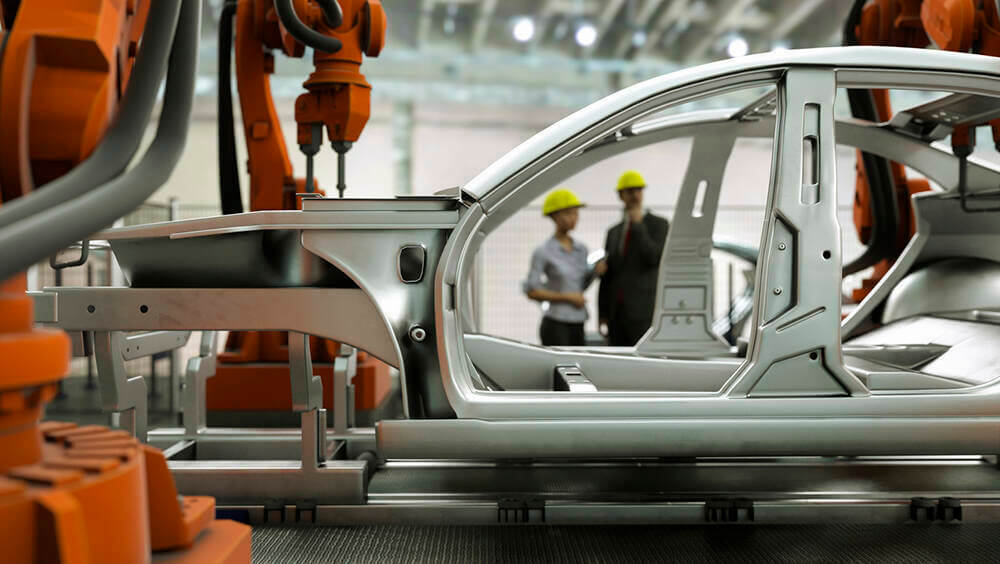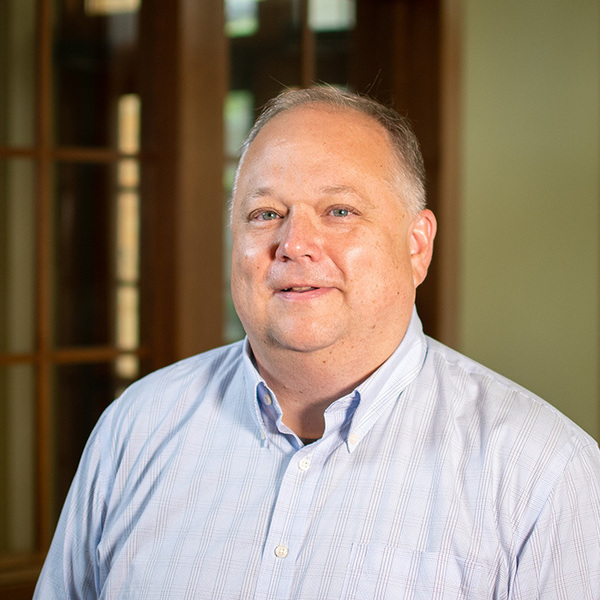ND Expert Daniel Graff on potential UAW strike: ‘We all have a stake in these negotiations’

As the strike deadline looms at 11:59 p.m. on Thursday (Sept. 14) for 146,000 members of the United Auto Workers union, many have termed “audacious” the union’s call for significant wage increases, a four-day workweek and a “just transition” for workers moving to EV production, which requires less labor than conventional cars.

As both sides ramp up efforts to seize the opportunity to advance in collective bargaining, Daniel Graff, director of the Higgins Labor Program at the University of Notre Dame, noted that the strong economy and demand for new vehicles, alongside the uncertainty of technological change, has put both the union and the corporations in a position of strength.
“Whether or not the union’s demands are realizable in this bargaining round, it is interesting to note that many of the UAW’s earlier calls for converting more productivity and profit gains into workers’ wages and benefits met with similar initial reactions,” said Graff, who has a joint faculty appointment in the Department of History and the Center for Social Concerns.
“Now many, though not all, of those ‘audacious’ demands have been redefined as essential components of a ‘good job’ today.”
The current contract negotiations are reminiscent of those in the heyday of American unionism from 1945 to the 1960s, Graff said, with UAW’s new president Shawn Fain seeming to “channel the ghost” of legendary UAW leader Walter Reuther, who helped bring about company-paid health care, pensions, paid vacations, supplemental unemployment benefits and cost-of-living adjustments to autoworkers — making them the best paid and most secure workers in the United States in the post-World War II era.
“Fain’s militant rhetoric, charging the Big 3 with greed in its refusal to share more of its recent profit gains with workers, recalls Reuther’s frequent spars that automakers hoarded ‘excess profits’ at the expense of the rank and file and the broader public as well,” Graff said.
At the same time, he noted, this is a very different moment for both sides. In the 1950s, the UAW was the largest, most powerful union in the country, GM was the world’s biggest corporation, and trends in auto employment often produced spillover effects throughout the economy.
Today, the UAW is much smaller, and the auto sector is facing “an existential crisis” brought on by global competition and climate change, he said.
“On top of the competition from cars produced abroad and those made in the U.S. by non-union competitors, the industry is faced with pressing demands to curtail greenhouse gasses as we all ramp up the efforts to fight climate change,” he said. “In the transition to electric vehicles and the calls for more mass transit, we all have a stake in the outcome of these negotiations.
“Whatever the result — which many see as inevitably leading to a rare simultaneous strike of the Big 3 — perhaps we should thank the UAW for reinvigorating the public conversation around what we expect from corporations and good jobs in the 21st century.”
Latest Faculty & Staff
- In memoriam: Alasdair MacIntyre, the Rev. John A. O’Brien senior research professor of philosophy emeritusAlasdair MacIntyre, the Rev. John A. O’Brien senior research professor of philosophy emeritus and a permanent senior distinguished research fellow at the de Nicola Center for Ethics and Culture, died on May 21, 2025. He was 96.
- Santiago Schnell, dean of Notre Dame’s College of Science, appointed as provost of DartmouthSantiago Schnell, the William K. Warren Foundation Dean of the College of Science at the University of Notre Dame, has accepted an appointment as provost at Dartmouth College. He will depart Notre Dame at the end of June and begin his new role in July.
- Notre Dame’s Fightin’ Irish Battalion receives Department of Defense award as nation’s top Army ROTC programThe United States Department of Defense honored the University of Notre Dame’s Army ROTC Fightin’ Irish Battalion as the nation’s top Army collegiate program for the 2023-24 academic year. This will be the first time the unit has received the department’s Educational Institution Partnership Excellence Award, which recognizes the program’s achievements in recruiting, educating, training and commissioning leaders of character to be the next generation of military officers.
- In memoriam: Karl Ameriks, the McMahon-Hank Professor of Philosophy EmeritusKarl Ameriks, the McMahon-Hank Professor of Philosophy Emeritus at the University of Notre Dame, died on April 28 from pancreatic cancer. He was 77. Born in post-World War II Germany, Ameriks’ family emigrated to the United States when he was a child, and he grew up in Detroit, Michigan. He received his bachelor’s and doctoral degrees from Yale University. He came to the Department of Philosophy at Notre Dame in 1973 during a formative time for the department, which had transitioned from a predominantly Thomist focus to the more analytical American philosophy in the 1960s.
- Notre Dame psychologist explores how children best learn math — and yes, timed practice helpsUniversity of Notre Dame professor of psychology Nicole McNeil recently co-authored a report that examines the best way for children to learn arithmetic — whether that’s by memorizing number values and multiplication tables, or by studying math at a deeper, conceptual level. The report, “What the Science of Learning Teaches Us About Arithmetic Fluency,” was published in the journal Psychological Science in the Public Interest and shows that children learn most effectively when instruction follows an evidence‑based cycle: grounding facts in conceptual understanding, using brief timed practice to make those facts automatic, and then returning to discussion and reflection to deepen that knowledge.
- ’Tis the season for ticks and mosquitoes. A medical entomologist talks about these pests and how to avoid them.Notre Dame expert Lee Haines explains the risks mosquitoes and ticks pose to the Midwest and discusses how the public can best protect themselves and family members (including pets) from these bloodthirsty pests.












